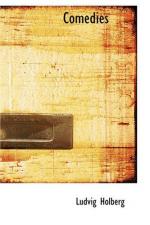When Holberg returned home, he found no vacancy in the faculty. While waiting in penury for the death of some professor, he wrote one of his most successful works of scholarship, an Introduction to International Law. At last, in December, 1717, he inherited, as it were, the chair of metaphysics in the university, being thus forced to begin his academic career by teaching a subject that he held in contempt. Fortunately this situation was not permanent. In 1719, he became professor of Latin; in the following year, a member of the university council; later in life, professor of history, the subject he liked best; and finally he was elected treasurer of the corporation. Holberg was thus associated all his life with academic pursuits. The greater part of his intellectual work was devoted to regular university duties and to the composition of scholarly treatises and moral essays, while the writing of the comedies that won him permanent fame formed but a short interlude in his busy life. He became a dramatist almost by chance.
In 1721, some influential citizens of Copenhagen decided that the time was ripe for establishing native drama in Denmark. A company was formed under the direction of a cashiered French actor, Montaigu, who obtained royal permission to bring out plays in Danish. Holberg, having become well known by his mock-heroic poem Peder Paars, was at once invited to furnish the company with original comedies, and responded enthusiastically. For the next few months he wrote with almost incredible swiftness, and by the time the theatre was opened, on August 23, 1722, he had finished five of his best plays, among which were Jeppe of the Hill (Jeppe paa Bjerget) and The Political Tinker (Den politiske Kandestober). During the six years in which the company eked out its precarious existence, Holberg produced twenty-six comedies, most of which were successfully performed. His literary fecundity seems the more remarkable when it is remembered that he had no Danish models.
The theatre was not well supported by the public. After the first year, the receipts of an evening amounted to no more than $13, and sometimes the actors were compelled to tell the spectators who had gathered that they could not afford to present the play to so small an audience. In 1728, the company was at last granted a royal subvention of about $2500 a year by Frederick vi, and it had begun to play under the proud title of Royal Actors, when Copenhagen was swept by a devastating fire. The theatre itself was not destroyed, but the town was so badly impoverished that for the moment all forms of public amusement had to be discontinued. Furthermore, the pietists, to whose doctrines the crown prince was a devout adherent, asserted that the fire was God’s scourge for the wickedness of Copenhagen, the most impudent form of which, they believed, was the drama. Before conditions in the city were enough improved to warrant the resumption of his subsidy to the actors, the king died, on October 12, 1730. Under the reign of his pietistic successor, Christian vi (1730-1746), no dramatic performances of any sort were sanctioned; the theatre building was sold at auction, the company disbanded, and Holberg ceased writing plays.




